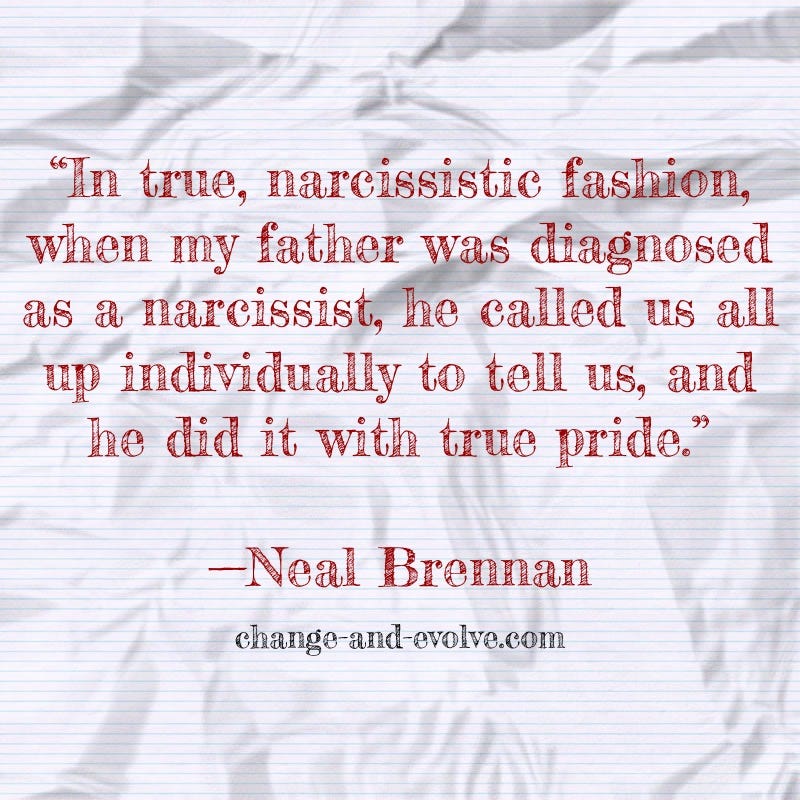This is - at least for now - the last episode on narcissism. I know I only touched two types of narcissism Grandiose or Overt Narcissism and Vulnerable or Covert Narcissism and yes, there are more. I will just briefly go into these, to at least have mentioned them. And of course, I know that this could become an endless series and I might come back to the topic now and again.
Communal narcissism. The behaviour of communal narcissists is motivated by a desire for social power and a sense of superiority or entitlement. Because of this, their actions don’t always match their beliefs. Communal narcissists tend to view themselves as altruistic and claim to care deeply about fairness. They often present themselves to others as supportive and selfless.
Antagonistic narcissism. In contrast with communal narcissists, antagonistic narcissists take a highly competitive approach to social interactions. They often exhibit zero-sum thinking, believing that every situation has a “loser” and “winner.” This view of the world leads them to be aggressive and hostile. They may be quick to disparage others and slow or unwilling to forgive.
Malignant narcissism. Malignant narcissists are probably the most dangerous ones as they can be a more destructive form of the personality disorder. In addition to the typical signs of narcissism, a malignant narcissist might be aggressive, paranoid, or sadistic—taking joy in other people’s pain. They tend to display antisocial behaviour, disregarding the rights or safety of others.
As I mentioned in the last episode, the types can blur together, there is no black or white!
Today I would like to dive a little deeper into NPD or Narcissistic Personality Disorder.
What you need to know is that NPD is a formal mental health diagnosis and not just a type of personality or a personal choice. A mental health condition, including a personality disorder, affects how someone feels, thinks, and behaves.
In turn, this can deeply affect day-to-day living and how people function in their relationships, at work, and in general. People with narcissistic personality disorder are often regarded as self-centred, lacking empathy, and having a great need for attention, recognition, and praise. But underneath this apparent sense of superiority are other important aspects at play. People with NPD can face challenges in their relationships because of how they are perceived and how they act.
Counselling and professional support can sometimes help them find a different way to connect to others and manage the shifts that may characterise this personality disorder. Due to the behaviour, the thinking, and self perception of most narcissists they will not be willing to even acknowledge that something could be wrong with them.
There are very specific criteria for the diagnosis of narcissistic personality disorder in the most recent edition of the Diagnostic and Statistical Manual of Mental Disorder (DSM-5).
The following are the nine symptoms of narcissistic personality disorder. The criteria to diagnose NPD include at least five of these nine symptoms of narcissistic personality disorder (the symptoms of NPD are usually complex and should only be diagnosed by a mental health professional) :
grandiosity and self-importance
fantasies of success, perfection, or power
a strong conviction of being special and unique
a need for admiration and praise
entitlement
a pattern of exploiting others for personal gain
low empathy
envy, jealousy, and distrust
arrogance, haughtiness, and scorn
Diagnosis criteria require these symptoms of narcissistic personality to remain consistent over time and show up in most domains of life - personal and professional. These symptoms may impair a person’s ability to function and relate to others, in general.
What is also important to know is that personality disorders are not a personal choice. Common misconceptions about them can complicate recovery for people who might want to reach out for help. In fact, the idea that narcissistic personality disorder symptoms can’t be treated is just another myth. As I mentioned, it is not easy for a narcissist to admit that there is a mental health issue or a personality disorder at hand.
That is the clinical side of NPD.
When you are in any way involved with a narcissist - it doesn’t matter which type - there are certain things you need to know and there are also questions you need to ask.
When the narcissist tells you they have changed and they love bomb you, suddenly give you the attention you always wanted, do the things you have so often asked them for you need to ask two very important questions.
Question one: WHY NOW? Why can they change now and why couldn’t they do it a year ago or five years ago. They heard you all the time but decided to ignore your needs. So why now? The answer is actually quite simple: Because their pain is big enough now. They want your attention back and with that get the control that they have lost. They need their supply of your love and admiration and everything else you have always given them so freely.
Question two: Have you changed enough? This is actually the more important question to ask yourself in this situation. Have you changed enough to realise when the narcissist falls back into they usual patterns - which they always do? Will you catch it right away? The narcissist will make any promises of change that they think you want to hear. Will you take their word or will you only believe actions? What will you do when the narcissist doesn’t follow through?
You have to change you so to NOT allow to be treated baldly ever again - not by anyone. They will not change but you can. Say NO! Don’t allow anyone to make you feel unworthy. Only you can break the pattern. If not for this relationship than for the next one.
One thing you should never do. Don’t argue with a narcissist, don’t try to make sense of them, and don’t try to find closure - you never win an argument with a narcissist, you will never make sense of a narcissist, and you will never get closure. Just walk away and never look back - ever! I made this mistake over so many years, trying to make sense of what was and kept happening. I so wanted to understand and it nearly broke me and it nearly cost me my life.
The worst question an empath can ask themselves when it comes to the behaviour of a narcissist is; what have I done to deserve this? You didn't do anything. A narcissist is not capable of love and empathy. They don’t care and simply move on to the next supply. It's just part of the pattern of a narcissist.
You need to come to terms with certain truths in life, especially with narcissists:
a. If they wanted to, they would
b. No response is a response
c. Not everyone has the same values, the same goals, or the same heart that you have.
d. People don’t abandon people that they love. People abandon people that they use. Know the difference! Know your worth!
e. If you don’t make peace with your past it will keep coming back to haunt you.
At the end of the day, the only thing that can work is NO CONTACT ever again. And then you do the work to heal yourself and lead the life that is meant for you.
Taking all this into account, one should also know that narcissists are often highly intelligent people who, when properly guided, can achieve incredible things. If they are also among those who recognise their narcissism and work to get it under control, they are capable of amazing things. The first step is as usual self-awareness, self-reflection, and of course the will to work on oneself.
🎶My Song of the Week
Is a fantastic song by Pink - All I Know So Far - here in a duet with Kelly Clarkson. The song starts at minute 2.25, if you don’t want to watch the interview. The lyrics are amazing and Pink is at her best!
For more good music, go to this Spotify playlist where you can find all the songs from the Change & Evolve Letters!
📚My Poem of the Week
Is by Langston Hughes (1902-1967)
Still Here
I been scarred and battered. My hopes the wind done scattered. Snow has friz me, Sun has baked me, Looks like between 'em they done Tried to make me Stop laughin', stop lovin', stop livin'-- But I don't care! I'm still here!
👀Impressions
My all time favourite flowers 🌺
For personal reasons, I will be concentrating a large part of my work and expertise on helping people that have become victims of narcissistic abuse and helping them find the road to healing. I would be happy to take the time for a speed coaching call that you can reserve right here, go to my website or simply hit reply and get in touch with me directly.
Thank you for your time and for reading this letter. I know there is so much more to be said about this topic and fell free to reach out to me. If you know anyone that has been subjected to narcissistic abuse, please share this letter with them.
If you enjoyed this letter, leave a ❤️ and a comment! I wish you an amazing weekend.
Yours
Tanja 🤗







What a great series of tutorials you’ve given us Tanja. Both the theory and your direct experience. It reminds me of the truth of that great saying “the best predictor of future behavior is past behavior”.